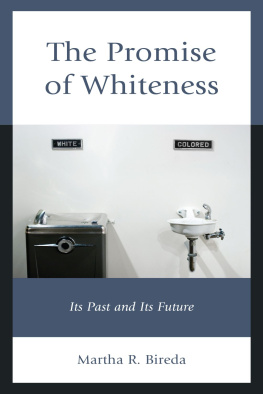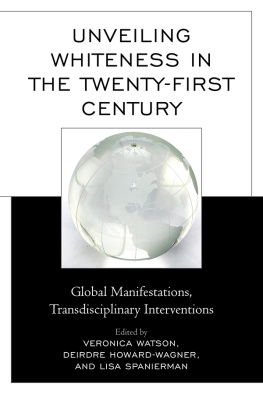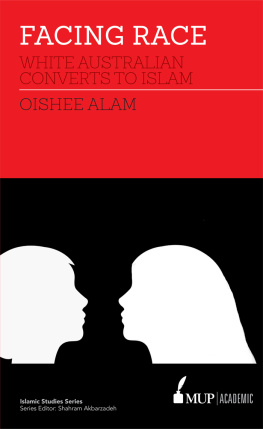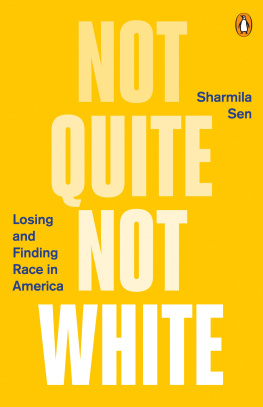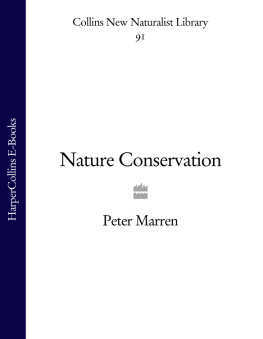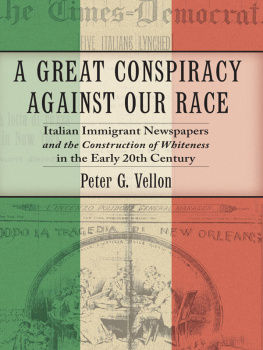CULTURE, PLACE, AND NATURE
Studies in Anthropology and Environment
K. Sivaramakrishnan, Series Editor
Centered in anthropology, the Culture, Place, and Nature series encompasses new interdisciplinary social science research on environmental issues, focusing on the intersection of culture, ecology, and politics in global, national, and local contexts. Contributors to the series view environmental knowledge and issues from the multiple and often conflicting perspectives of various cultural systems.
THE NATURE OF WHITENESS
RACE, ANIMALS, AND
NATION IN ZIMBABWE
YUKA SUZUKI
Copyright 2017 by the University of Washington Press
Printed and bound in the United States of America
Design by Thomas Eykemans
Composed in Warnock, typeface designed by Robert Slimbach
21 20 19 18 17 5 4 3 2 1
All rights reserved. No part of this publication may be reproduced or transmitted in any form or by any means, electronic or mechanical, including photocopy, recording, or any information storage or retrieval system, without permission in writing from the publisher.
UNIVERSITY OF WASHINGTON PRESS
www.washington.edu/uwpress
LIBRARY OF CONGRESS CATALOGING-IN-PUBLICATION DATA
Names: Suzuki, Yuka, author.
Title: The nature of whiteness : race, animals, and nation in Zimbabwe / Yuka Suzuki.
Description: Seattle : University of Washington Press, 2017. | Series: Culture, place, and nature
Identifiers: LCCN 2016035956 | ISBN 9780295999531 (hardcover : alk. paper) | ISBN 9780295999548 (pbk. : alk. paper)
Subjects: LCSH: WhitesRace identityZimbabwe. | Nature conservationZimbabwe. | Wildlife managementZimbabwe. | ZimbabweRace relations.
Classification: LCC DT2913.E87 .S89 2017 | DDC 305.80906891dc23
LC record available at https://lccn.loc.gov/2016035956
The paper used in this publication is acid-free and meets the minimum requirements of American National Standard for Information SciencesPermanence of Paper for Printed Library Materials, ANSI Z39.481984.
CONTENTS
by K. Sivaramakrishnan
FOREWORD
A small but growing body of scholarship across fields such as social or medical history, anthropology of body and ethnicity, and the politics of citizenship has grappled with the cultural politics of race, specifically the idea of whiteness and its community of belonging in locations where white settlement occurred after 1492. To this emergent scholarship Yuka Suzuki offers a powerful and well-crafted addition that approaches the topic through concern with terrain, wild animals, and inhabitation.
A little over a decade ago, Donald Moore, Jake Kosek, and Anand Pandian described what they called landscapes of affect, where race and nature gain their tangible presence... through the play of passionate desires, fears, and faiths. Yuka Suzuki delivers a monograph about such landscapes of affect in Zimbabwe, where race and nature collide as white and black inhabitants reimagine and enact their relations to each other and the wild animals caught between them.
Visible whiteness is the creative analytical category that Suzuki develops and deploys to unpack the logic of white settler relations to land and black Zimbabweans in her brave and lucid study of whiteness, nature conservation, and contested belonging in twenty-first-century southern Africa. How white settlers imagined themselves into a landscape they had only recently entered, through conquest and displacement of natives, is a topic that has received some attention in the Americas and occasionally in antipodean settings such as Australia or New Zealand. Histories of land and struggles around it in Africa have less often paid close attention to the sentiments and attachments of white settlers, who have more easily been rendered as the rulers and expropriators, with a more instrumental and exploitative relation to the landincapable of ideas of stewardship or care in these foreign territories.
Especially across eastern and southern Africa, transitions following the end of colonial rule included redefining vast areas earlier marked as game reserves and protected forests or wildlife sanctuaries. Intense pressure on land for African farmers and pastoralists, pushed aside or confined in earlier times, made the transitions explosive. Land invasions, decimation of wild animals, and attacks on settler lifestyles that had been expansive and exclusive in their use of land and forest scarred the land as well as settler-native relations. Settlers asserted their claims and attachments to their land by displaying their intimate familiarity with nature, wildness, and conservation ideas. Beleaguered settlers worked hard, after Zimbabwean independence, to articulate a lived and worked landscape on which they remainedno longer as cattle ranchers, but increasingly as custodians of the wild animals that, like them, faced extinction, as they became objects of fear or desire, identified as bearers of unbridled wild power that was out of place and order in a majority-ruled nation.
Suzukis sensitive ethnography unveils the predicament of the white settlers without buying into their exculpatory accounts about land that was still very unevenly distributed between them and native Africans in Zimbabwe. Along the way, she provides a fascinating account of human-animal relations and the interplay between the categories of race and nature through which interpersonal relations forged in this embattled landscape are sustained or break down.
As the study of human-animal relations moves more predictably into the purview of multispecies ethnography, Suzuki reminds us of all that remains to be learned by inspecting the natural history of race relations via human relations with wild animalsas food, spectacle, farm companions, and indices of civility and belongingat times of dramatic social upheaval.
K. Sivaramakrishnan
Yale University
ACKNOWLEDGMENTS
This book would not have been possible without the generosity and kindness of the farmers of Mlilo. I owe my greatest debt to Jon and Marie Van den Akker, whom I can only refer to by pseudonym, but whose encouragement, fiery spirit, and humor sustained me throughout my research in Zimbabwe.
The scholars I met at the University of Zimbabwe offered input that helped shape this project in significant ways. I extend my gratitude to Vupenyu Dzingirai, Elias Madzudzo, Isaac Malasha, Phanuel Mugabe, James Murombedzi, Marshall Murphree, and Nontokozo Nabane for sharing their knowledge and ideas. The Centre for Applied Social Sciences at the University of Zimbabwe, where I was affiliated as a research associate, provided me with institutional support during my fieldwork. The research on which this book is based was funded by the Wenner-Gren Foundation, the Social Science Research Council, the Program in Agrarian Studies at Yale University, and the Yale Center for International and Area Studies.
Over the years, many people have provided commentary on chapters or entire drafts of this book. Others have influenced its development through ongoing conversations and exchanges. I thank Megan Callaghan, Rebecca Cassidy, Jean Comaroff, Carole Crumley, Bill Derman, Michle Dominy, Omri Elisha, Abou Farman, James Ferguson, Harold Forsythe, Amanda Hammar, Donna Haraway, Rebecca Hardin, Jeff Jurgens, Yoonhee Kang, Jake Kosek, Cory McCruden, Pamela McElwee, Donald Moore, Molly Mullin, Juno Parreas, Hugh Raffles, Josh Rubin, Blair Rutherford, Jesse Shipley, Anna Tsing, Katja Uusihakala, and Vron Ware.


